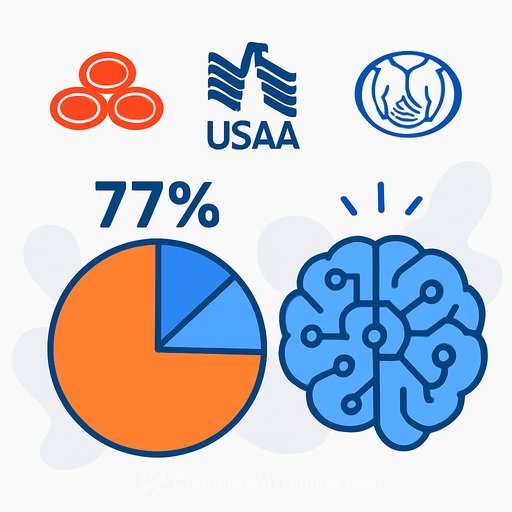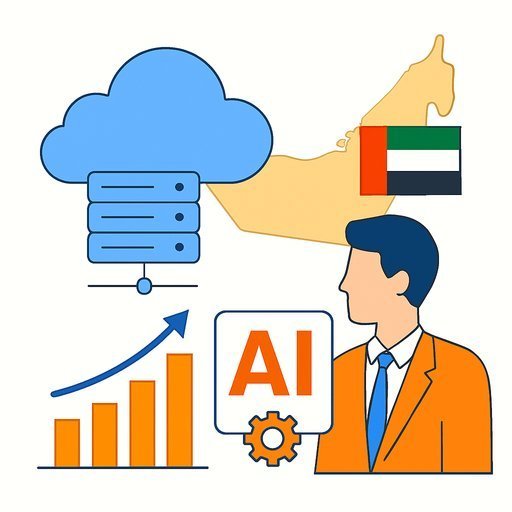Insurance Industry at a Crossroads
Big insurance companies have long been slow to change. Many have operated for over a century with business models and processes that remain largely unchanged. Like supertankers, turning these giants takes time. Despite investing billions in technology over the past 20 years, significant productivity gains have been elusive.
Simon Kaesler from McKinsey points out that unlike industries such as automotive and technology, insurance hasn't seen steady productivity improvements. Digital tools helped, but they didn't transform the industry.
AI: The New Catalyst
Artificial intelligence is now set to shift the landscape. Hundreds of Insurtech startups are bringing AI to insurance processes, promising faster and more accurate underwriting, fraud detection, and claim settlements.
Melanie Kolp, CTO at Nationwide, highlights a shift from technology-led experiments to business-led transformation. AI offers a chance to rethink entire insurance operations.
Large language models and generative AI can process vast datasets to improve risk assessment and customer interactions. Automating billing and responding quickly to inquiries can also improve customer experience.
Kaesler notes that insurance, with its contract-based and unstructured processes, is well-suited for AI applications. Potential productivity improvements of 30% to 40% could allow insurers to handle significantly more policies without increasing staff.
Challenges with Legacy Systems
Integrating AI and machine learning into existing legacy systems is challenging. Maintaining customer service and loyalty is crucial during this process.
Scott Case, CTO at Prudential Financial, explains the need to blend new and old technology within control and security frameworks. Prudential actively seeks third-party AI solutions to help employees and agents make better decisions.
Despite a failed acquisition of an Insurtech in 2019, Prudential continues to form partnerships to expand its reach, including efforts to serve underinsured Latin American markets.
For Prudential, technology adoption is driven not just by cost savings but by meeting customer expectations more effectively.
Arun Prasad of Deloitte points out that better APIs now make it easier to integrate new technologies with legacy systems. Collaboration with Insurtech firms is proving essential in smoothing operational friction points, whether in underwriting, claims, billing, or customer engagement.
Pioneers and Partnerships in Insurtech
Insurtech firms fall into two groups: those growing independently in the insurance market, and those improving processes for existing insurers. Despite holding only about 1% of the $8 trillion global market, some companies stand out.
- Zhong An, an online insurer in China, has millions of customers and is expanding to Japan through a partnership with Sompo Japan Nipponkoa.
- Lemonade Inc. in New York serves 2.4 million customers and has over $1 billion in premiums, with backing from Allianz.
- Alan, a French health insurer, serves 745,000 customers across several countries, aiming for profitability soon. AI supports 98% of claims settled within 24 hours.
- Next Insurance focuses on small business commercial insurance and recently joined Munich Re, gaining access to a larger insurance network to fuel growth.
These partnerships suggest that collaboration between Insurtech startups and established insurers could accelerate industry changes. Munich Re’s acquisition of Next Insurance may help spread AI tools across its operations.
James Ruotolo from SAS notes that innovation is happening both within insurers and through partnerships with Insurtech firms. With SAS serving 47 of the 50 largest global insurers, Ruotolo anticipates more acquisitions as AI technologies prove their value.
Looking Ahead
The insurance industry is showing signs of increased agility. As AI tools mature and partnerships deepen, insurers have a real chance to improve efficiency and customer service.
For insurance professionals seeking to stay ahead, understanding AI’s role and the evolving tech landscape is essential. Exploring targeted AI courses can help build relevant skills for this shift. Consider checking out AI courses tailored for insurance professionals to prepare for these changes.
Your membership also unlocks:






